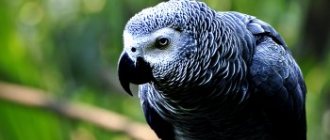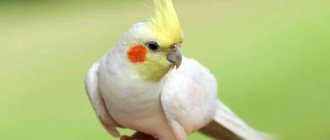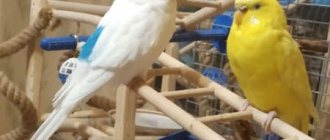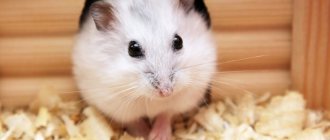Parrots are a group of birds that includes 279 different species. They differ primarily in size: from small birds that can fit in the palm of your hand to large ones the size of a cat. The duration of each type also tends to vary.
A pet can live the longest at home. Every potential owner should understand how many years parrots live in order to provide them with comfort and climatic conditions in the future. We are not talking about 5-10 years of a happy life with a pet, but about several dozen.
Conditions for parrot longevity
Despite the fact that parrots have a genetic predisposition to longevity, every parrot owner should take care of comfortable living conditions at home.
The lifespan of parrots depends on a number of factors:
- From the presence of a spacious cage with various toys and “exercise machines”.
- From a varied and balanced diet.
- From the correct temperature and light conditions.
- From the presence of UV illumination.
- From emotional comfort.
In the absence of proper attention, your pet begins to get bored and may even become ill. In this regard, communication with the parrot should be very active. If there is not enough personal time to communicate with such a pet or there is no desire to spend your personal time on this communication, then it is better to give such a bird to people who are more responsible.
How long do parrots live? // keeping a large parrot
What affects life expectancy?
In order for the life of a domestic bird to be long enough, it is necessary to organize comfortable living conditions. Careful care and caring attitude affect the life expectancy of a pet. It also depends on the following conditions:
- Ventilation of the room - in the room with the home of the domestic bird there must be acceptable temperature and humidity standards. Drafts should not be allowed to prevent the pet from getting sick.
- A balanced diet - the bird must be fed food that contains various grains, pieces of vegetables and fruits. Leftover food consumed by the owner is prohibited. They can seriously harm your pet’s body: disrupt the functioning of the stomach and nervous system.
- High activity - a prerequisite for keeping birds in the house is the ability to walk around the apartment. You cannot leave the bird alone, because... he might get hurt or eat something harmful.
- Cage equipment - the size of the home should be much larger than the pet. It is not recommended to install the cage next to operating equipment. Noise negatively affects the health of the bird.
- Communication with the owner - the attention and care of the owner prolongs the life of the pet. Taciturn people should not get a chatty bird, so as not to shorten their lifespan.
- Features of genetics - predisposition to various diseases at the genetic level has a great influence on the quality and lifespan of a pet. Crossbreeding of closely related individuals negatively affects the health of the offspring. Chicks get sick a lot and are often stressed.
Budgerigars
Domestic parrot lovers often prefer budgies, which are characterized by their unpretentiousness and low cost. This species of parrot, living in the Australian wild, lives no more than 5 years.
Over the years, these birds have not only changed in appearance as a result of intensive selection work, but also began to live longer, sometimes living up to 2 decades, or even longer.
Budgerigars differ in their requirements when it comes to the issue of their life expectancy. The problems are mainly related to the diet, which must include:
- 2 teaspoons of grain mixtures, which include millet, flax, sunflower and meadow grass seeds.
- Fruits and vegetables.
- Lettuce, dandelion, plantain and radish leaves.
- Boiled eggs and low-fat cottage cheese.
- Vitamin and mineral supplements that contain calcium.
A similar list of nutritional components can serve as the basis for keeping many types of budgerigars at home.
How long do budgies live?











